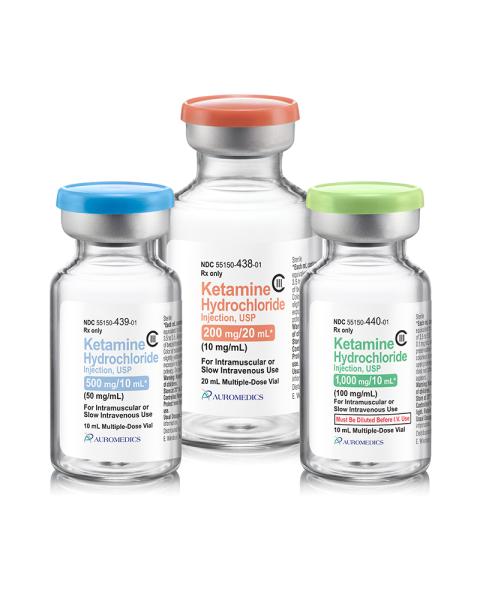Ketamine and Alcohol/Food Interactions
There are 2 alcohol/food/lifestyle interactions with ketamine.
Ketamine Food/Lifestyle
Moderate Food Interaction
Alcohol can increase the nervous system side effects of ketamine such as dizziness, drowsiness, and difficulty concentrating. Some people may also experience impairment in thinking and judgment. You should not drink alcohol during treatment with ketamine. If you have received ketamine for anesthesia, you should avoid activities requiring mental alertness such as driving or operating hazardous machinery for at least 24 hours and until you know how the medication affects you. If you are taking ketamine orally, you should also avoid the consumption of grapefruit or grapefruit juice, which can significantly increase blood levels and side effects of the medication. Talk to your doctor if you have any questions or concerns. It is important to tell your doctor about all other medications you use, including vitamins and herbs. Do not stop using any medications without first talking to your doctor.
Switch to professional interaction data
Ketamine High Blood Pressure (Hypertension)
Major Potential Hazard, Moderate plausibility
ketamine - hypertension
The use of ketamine is contraindicated in patients whom a significant elevation of blood pressure would constitute a serious hazard. It is recommended to monitor cardiac function continually during a procedure in patients with hypertension or cardiac decompensation.
Switch to professional interaction data
Ketamine drug interactions
There are 424 drug interactions with ketamine.
Ketamine disease interactions
There are 2 disease interactions with ketamine which include:
More about ketamine
- ketamine consumer information
- Check interactions
- Compare alternatives
- Pricing & coupons
- Reviews (168)
- Drug images
- Latest FDA alerts (4)
- Side effects
- Dosage information
- During pregnancy
- Support group
- Drug class: general anesthetics
- Breastfeeding
- En español
Related treatment guides
Drug Interaction Classification
| Highly clinically significant. Avoid combinations; the risk of the interaction outweighs the benefit. | |
| Moderately clinically significant. Usually avoid combinations; use it only under special circumstances. | |
| Minimally clinically significant. Minimize risk; assess risk and consider an alternative drug, take steps to circumvent the interaction risk and/or institute a monitoring plan. | |
| No interaction information available. |
See also:
Further information
Always consult your healthcare provider to ensure the information displayed on this page applies to your personal circumstances.


